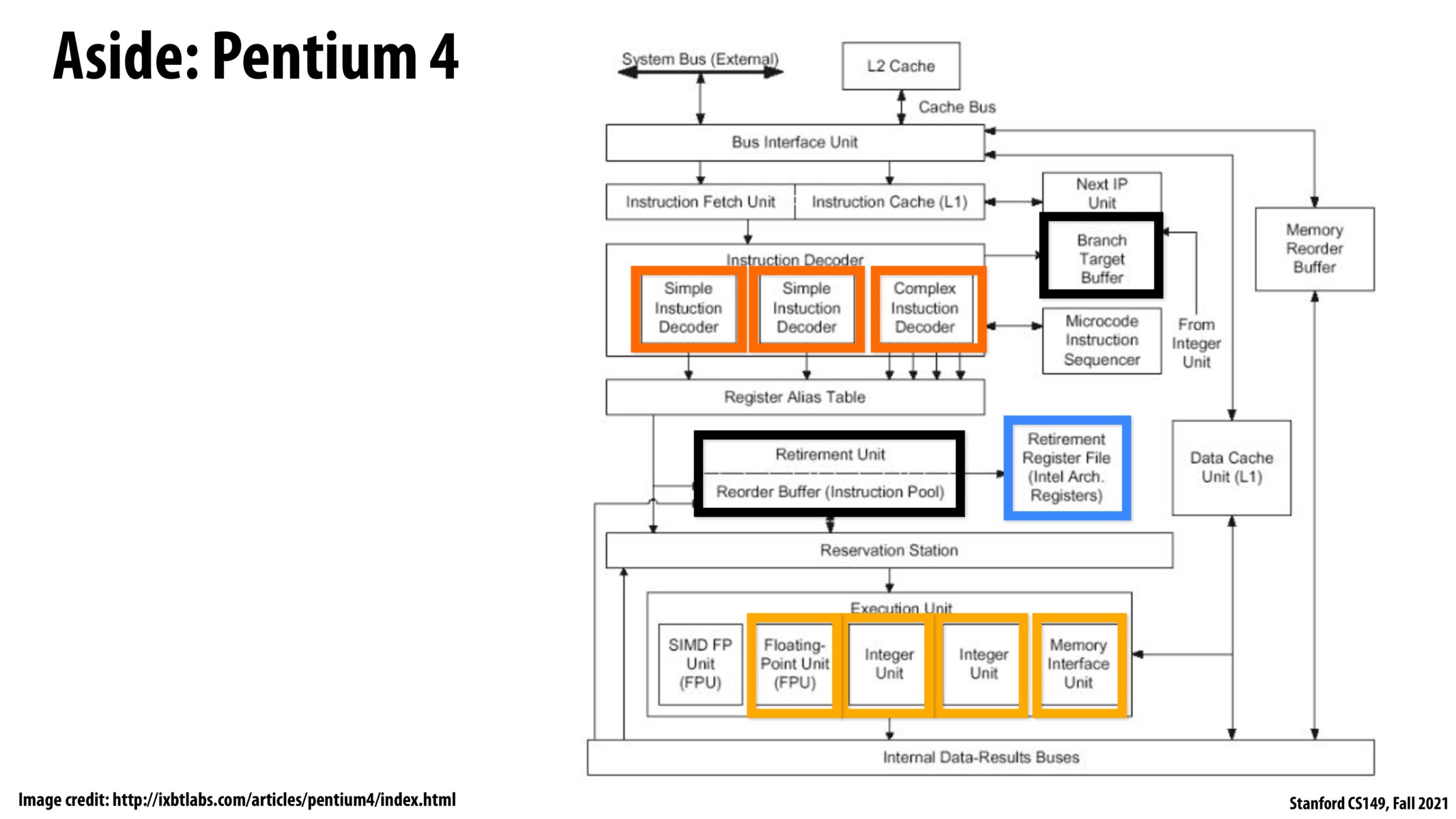


I think the Branch Target Buffer is for branch prediction. For example, when encounter an if statement, the processor might decide to compute both the True and False scenarios to save clock cycles. The Reorder Buffer tracks the state of all instructions currently being executed so they can be correctly committed. It is important since instructions are being executed out-of-order with superscalar.

Over the years as a consumer, I feel like certain Intel processors and technologies (e.g. Pentium, Core 2 Duo, Hyper-Threading) have made their way into popular consciousness, while not so much for other those from other companies like AMD. Is this purely marketing, or was Intel truly more advanced than its competitors (and was its advantage sustained)?

@sareyan - AMD has also accused Intel of pricing it's products in a discriminatory manner to retain it's monopoly on the market and there have been anti-trust allegations on Intel. Although, personally, I do believe Intel initially was able to monopolize the market because of several factors such as - having their own fabrication units since their conception, implementing the idea of an integrated graphics card before AMD could, better thermal performance (lower TDP ratings), et cetera.

Allowing the hardware for parallelism results in overhead (coherence protocols, extra space/power/transistors to manage order), but can be worth the tradeoff if there is enough benefit in parallelism. Most applications have a limit in parallelism (see Amdahl's Law), so there is a limit to the number of threads where parallelism ceases to have a benefit.

Yup which is very interesting how we're adding this increasing complexity in designing modern processors with all sorts of branch prediction algorithms, deeper pipelines, and a bunch of other things that significantly increase the overhead in the hopes that the increased parallelization will pay off (which it frequently does) but that generality renders our processor to be less optimized for other applications which is why designing custom hardware will theoretically give you a much higher performance than using a pre-built processor but making new custom hardware is very expensive.
Please log in to leave a comment.
what's special about the two black boxes?